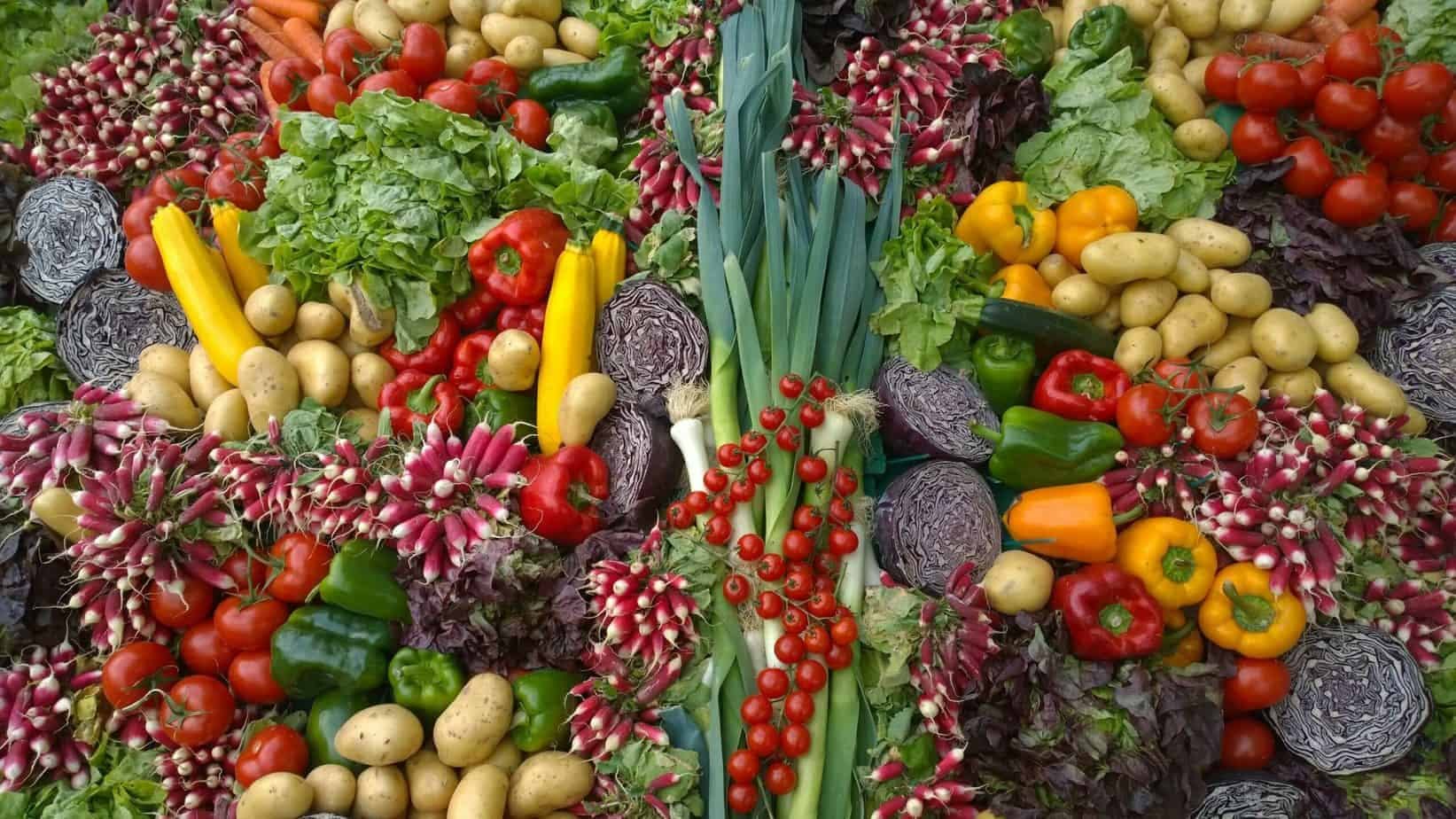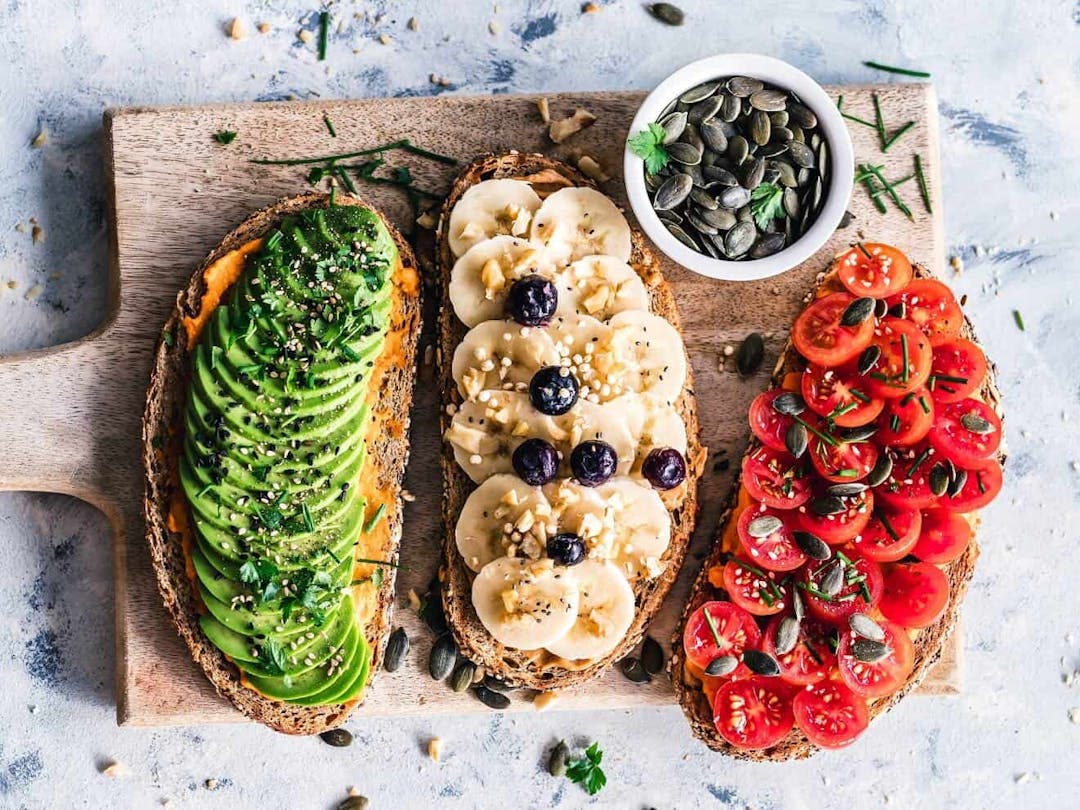


Find foods you can eat.
Introduction to a Vegetarian Diet
Published on August 19, 2022The vegetarian diet has grown in popularity over the years due to its environmental sustainability, ethical implications, and health benefits. In fact, an estimated 5% of the American population follows a vegetarian diet. While the vegetarian diet can be an extremely healthy way of eating, there are a few considerations to keep in mind. If you’re vegetarian or are contemplating becoming vegetarian, keep reading!
What is a vegetarian diet?
A vegetarian diet is one that focuses primarily on plant-based foods and excludes meat, poultry, and seafood. Depending on the individual, additional animal products may be excluded as well. Vegetarian diets can be broken down into subtypes including:
- Lacto-ovo vegetarian: excludes meat, poultry, and seafood, but includes dairy products and eggs
- Lacto-vegetarian: excludes meat, poultry, seafood, and eggs, but includes dairy products
- Ovo-vegetarian: excludes meat, poultry, seafood, and dairy products, but includes eggs
Reasons to follow a vegetarian diet
Individuals may choose to follow a vegetarian diet for ethical or environmental concerns surrounding animal agriculture, cultural and religious reasons, or health-related reasons. A well-planned, balanced vegetarian diet can offer significant health benefits including:
Cardiovascular health
Vegetarian diets centered around whole plant-based foods are naturally rich in prebiotic fibers, cholesterol-lowering phyto-chemicals, and monounsaturated fats like olive oil, avocados and avocado oil, nuts and seeds, and nut and seed butters, all of which have been associated with reduced risk for cardiovascular and coronary events, as well as heart failure. Vegetarian diets also tend to be low in saturated fat, and when saturated fat from meat and dairy is replaced with plant-derived mono- and polyunsaturated fats, whole grains, or plant proteins, cardiovascular disease risk appears to decrease. Numerous studies have also linked vegetarian diets with a reduction in LDL cholesterol (referred to as the “bad cholesterol”) and blood pressure.
Weight management
While everyone’s approach and response to the vegetarian diet is unique, vegetarian diets tend to be lower in total fat compared to diets that include more animal products. Since fat contains more calories per gram compared to carbohydrate and protein, reducing your fat intake may aid in weight management. That said, fat is also a satiating macronutrient, so eating too little fat may cause you to feel hungrier and over-consume carbohydrates, which may actually promote weight gain. Replacing fatty meats and other animal products with high-fiber plant-based foods, however, is likely to result in weight loss or assist in weight maintenance.
Vegetarian diets tend to be high in fiber, which provides few calories, but takes up space in our stomach, helping us feel full. Fiber also slows the absorption of sugar into our blood, stabilizing blood sugar and further promoting satiety. This may make it easier to achieve or maintain a healthy weight. In fact, a cross-sectional study of over 35,000 healthy adults published in the International Journal of Obesity supports this notion, and found that vegetarians tend to have a lower BMI compared to meat-eaters. It is worth noting that vegetarians may also tend to be more health conscious as a whole, and more likely to engage in other health behaviors compared to meat eaters, potentially skewing results. Nonetheless, this study provides some valid insight.
Cancer risk
Observational studies suggest that vegetarian diets are associated with lower risk for various cancers including colorectal, stomach, pancreatic, endometrial, breast, lung, esophageal, and bladder cancers. This association may be partially attributed to higher intakes of the many naturally occurring compounds found in plants that are protective against cancer and have potent antioxidant properties. Higher fiber intakes are also linked with lower cancer risk, and plants are the only place where fiber is found. Additionally, vegetarians do not consume processed meats, which are recognized as a Group 1 carcinogen by the World Health Organization.
Blood sugar stability
Dietary patterns centered around plant-based foods may lower risk for insulin resistance, type 2 diabetes, and pre-diabetes. This may be partially attributed to lower intakes of saturated fat, which, when consumed in excess, may contribute to insulin resistance and promote inflammation. On the contrary, vegetarian diets are associated with higher intakes of fiber and antioxidants, which lower inflammation.
How to follow a vegetarian diet
A vegetarian diet includes:
- Fruits
- Vegetables
- Beans and legumes
- Grains
- Nuts and seeds
- Eggs and/or dairy products (depending on the individual)
In addition to excluding meat, poultry, and seafood, vegetarian diets typically exclude foods like gelatin, animal fat (such as lard and tallow), and broths made with meat, poultry, or seafood.
Helpful tips when starting a vegetarian diet
While it may be tempting to double down on processed meat alternatives when beginning a vegetarian diet, vegetarian diets that focus primarily on whole plant-based foods are more beneficial for overall health. Meat substitutes are perfectly fine to consume in moderation and can be a nice way to increase your protein intake every once in a while, however, many are heavily processed. Processed meat alternatives also often contain additives that may lead to adverse health effects if regularly consumed in excess. When starting a vegetarian diet, incorporating plenty of minimally processed plant-based proteins such as quinoa, beans, legumes, nuts, seeds, tempeh, tofu, seitan, soy milk, and eggs and dairy products (if you choose to include them), will help you meet your needs. It is also important to include the widest variety of plant-based foods in your diet as possible, as this will help ensure you are obtaining a range of essential vitamins and minerals.
Following a vegetarian diet may seem fairly straightforward, but there are a number of ingredients aside from meat, poultry, and seafood, to keep an eye out for including but not limited to:
- Gelatin (commonly found in marshmallows, gummy candy, other desserts, and some supplements)
- Animal rennet (often used in cheesemaking)
- Worcester sauce (contains anchovies or fish sauce unless otherwise specified)
- Lard (rendered pig fat)
- Schmaltz (rendered chicken or goose fat)
- Tallow (rendered beef or mutton fat)
- Broths made with animal bones or seafood
- Isinglass (gelatin derived from fish, often used as a clarifying agent in beer and winemaking)
Some vegetarians may also choose to avoid bee products like honey and foods that contain beeswax. If you choose to exclude eggs or dairy products from your vegetarian diet, check out our Introduction to an Egg Free Diet and Introduction to a Dairy-Free Diet blog posts for helpful tips!
The Fig app can also help you to easily determine whether or not a product is vegetarian. Simply tell Fig which grocery store you shop at, and Fig will show you a list of every vegetarian product at that store. You can also scan a product’s barcode to check if it’s likely vegetarian.
When dining out, you may want to inform your server that you are vegetarian. If you avoid eggs and/or dairy products, be sure to specify. With vegetarianism on the rise, most restaurants offer vegetarian options, but certain cuisines like Indian, Israeli, Mediterranean, Ethiopian, Mexican, Chinese, and Southern Italian (among many others) are exceptionally vegetarian-friendly.
Things to keep in mind on a vegetarian diet
A well-planned vegetarian diet can be incredibly nutrient-dense; however, there are a few nutritional considerations to keep in mind:
Vitamin B12
Vitamin B12 serves numerous roles in our bodies, including energy production and metabolism, formation of red blood cells and DNA, nerve function, and brain development. Since plant-based foods do not naturally contain much vitamin B12, vegetarians are at greater risk for deficiency. Vegetarians who regularly consume dairy products and eggs are likely to meet their vitamin B12 needs, since these foods are rich sources. Fortified foods such as fortified milk alternatives and cereals also contain vitamin B12, as does nutritional yeast, a vegetarian seasoning. Vegetarians who do not consume eggs, dairy products, or B12-fortified foods regularly may want to consider taking a vitamin B12 supplement to ensure they’re getting enough.
Iron
We need iron for various metabolic processes in addition to blood production. Specifically, iron is a key component of hemoglobin, a protein that carries oxygen in our blood. Animal-based foods like meat and seafood are rich sources of iron, so if you avoid these foods, it may be more difficult to obtain sufficient iron. While many plant-based foods like beans, legumes, whole grains, dried fruit, and dark leafy greens naturally contain iron, it’s less bioavailable, meaning our bodies aren’t able to absorb it as readily. To boost iron absorption from plant sources, try pairing iron-rich plant-based foods with a vitamin C source, like lemon juice or tomato sauce. Vitamin C enhances our absorption of iron from plant-based sources, helping to prevent iron-deficiency anemia.
Calcium
For vegetarians avoiding dairy products, it’s important to consume plenty of calcium-rich plant-based foods. Cruciferous vegetables like arugula, broccoli, bok choy, collard greens, kale, and mustard greens are especially high in bioavailable calcium. While many calcium-rich plants contain oxalates and phytates, which interfere with our calcium absorption, cruciferous vegetables lack these calcium absorption-blocking compounds. Calcium-fortified milk alternatives, nuts and seeds, tofu made with calcium sulfate, tempeh, and even certain fruits like figs and kiwi, are all great vegetarian calcium sources to incorporate. For more on how to incorporate calcium on a dairy-free diet, check out our blog post here!
Protein
When we hear “protein,” we often think of meat, but animal products are certainly not the only places to find protein. Beans, legumes, tofu, tempeh, seitan, nuts, seeds, soymilk, and even grains like quinoa all contain protein. It is important to keep in mind that while there are many vegetarian protein sources, plant-based proteins are often a significant source of another macronutrient as well. For example, nuts and seeds contain protein, but they are also a significant source of fat. Similarly, beans are a protein but also a significant source of carbohydrates. Depending on your nutrition needs and health goals, you may want to increase or decrease your intake of certain macronutrients, so it’s helpful to keep this in mind. Additionally, not all plant proteins are complete proteins, meaning not all contain the 9 essential amino acids that our bodies require. If you consume a varied diet, however, over the course of the day it is likely that you will obtain the essential amino acids that one particular meal may lack.
Omega-3 Fatty Acids
Animal proteins like seafood are notoriously rich in omega-3 fatty acids, a type of essential fatty acid that opposes inflammatory processes in our body, is needed for brain function, heart health, and much more. Most Americans, vegetarian or not, don’t eat enough omega-3s, and eat too many omega-6s. Plant-based foods like walnuts, flaxseeds, chia seeds, and hemp seeds all contain omega-3s, but they are in the form of ALA. The issue is that our bodies must convert ALA to the active forms of omega-3 fatty acids, EPA and DHA. Unfortunately, our bodies are not very efficient at this conversion, so only a small proportion of the ALA we consume is converted into the active forms of omega-3s. Additionally, many plant-based omega-3 sources also contain a significant amount of omega-6 fatty acids, making it more difficult to achieve an optimal omega-6 to omega-3 ratio, which is thought to be around 1:1. Today, it is common for Americans to have an omega-6 to omega-3 ratio closer to 20:1, which is thought to promote inflammation. Seaweed and algal oil are some of the few plant-based foods that contain EPA and DHA, so those following a vegetarian diet might consider regularly incorporating seaweed into their diet, or taking an algal oil-based omega-3 supplement.
Who is a vegetarian diet not for?
A vegetarian diet centered around minimally processed plant-based foods is a very healthy pattern of eating and most people can easily meet their nutritional needs without consuming meat, poultry, or seafood. Those following a vegetarian diet should, however, take extra consideration to incorporate certain nutrients found predominantly in animal products. Additionally, if you are new to a vegetarian diet and experience adverse health effects such as fatigue or unintentional weight changes, it can be helpful to work with a registered dietitian, who can help you to identify and fill potential nutritional gaps.
As always, the Fig app is a great way to learn which ingredients are and aren’t vegetarian – and to find vegetarian food at the grocery store. You can also see a list of all products and whether they are likely vegetarian online.
 Introducing Fig+
Introducing Fig+ How to start a vegan diet
How to start a vegan diet